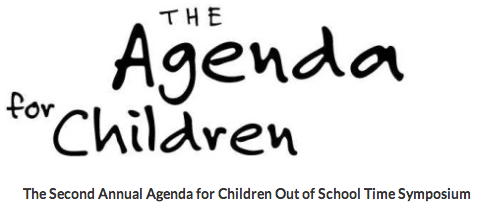
Second Annual Out of School Time Symposium
Nov 19, 2014
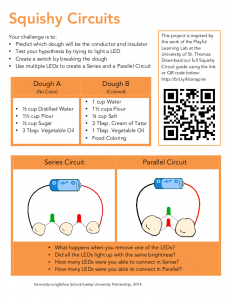 |
|
Kinetic Sculpture |
Squishy Circuits |
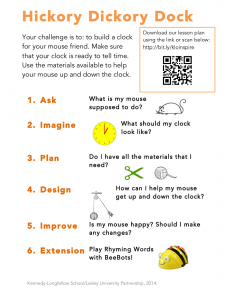 |
|
Scratch and Maps |
Hickory Dickory Dock |

Second Annual Out of School Time Symposium
Nov 19, 2014
 |
|
Kinetic Sculpture |
Squishy Circuits |
 |
|
Scratch and Maps |
Hickory Dickory Dock |
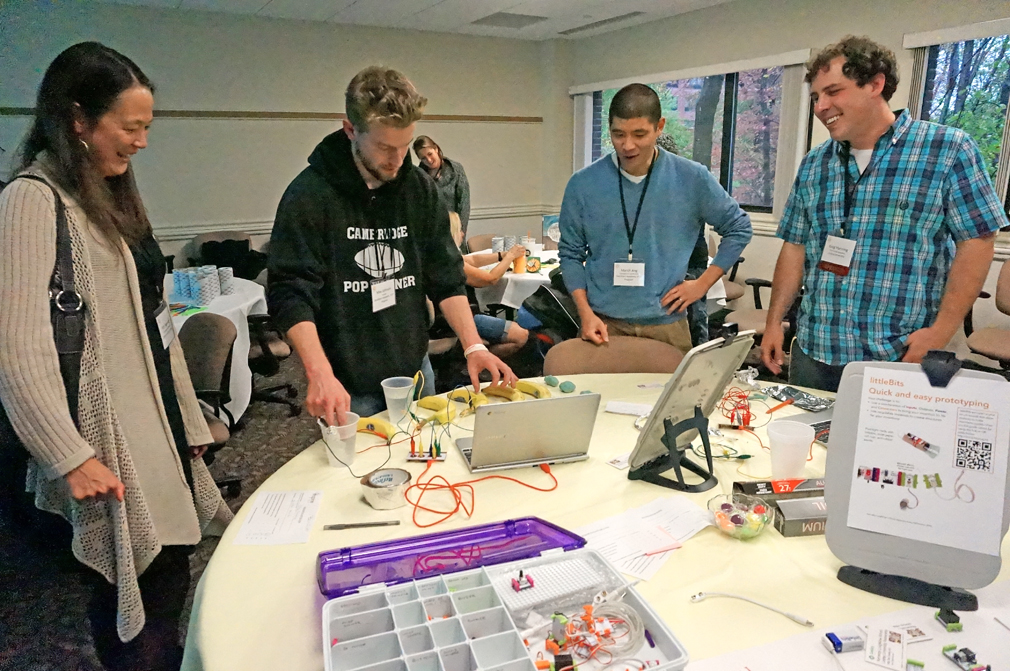
INSPIRE 2014 Conference website
Oct 23, 2014
 |
|
Kinetic Sculpture |
Squishy Circuits |
 |
|
Scratch and Maps |
Hickory Dickory Dock |
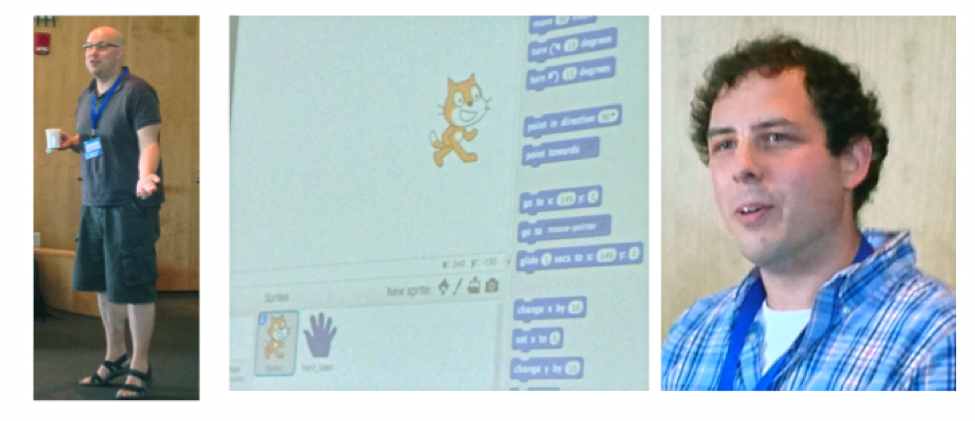
Kreg Hanning, Lesley University
Stephen Howell, Academic Engagement Manager for Microsoft Ireland, South Dublin
Connor Hudson, High School student, Boulder Colorado
Steve Homes, Creative Computer Lab, Galway, Ireland
Scratch@MIT Conference 2014
August 8th, 2014
At this years Scratch@MIT conference I was fortunate enough to share my Leap Motion extension during a panel discussion titled, “Extending Scratch 2.0 with Strange Devices”. The discussion centered around the use of the extension in Scratch 2.0, and some of the thought behind developing the extension.
Stephen Howell shared his Kinect2Scratch extension, which let’s you connect the Microsoft Kinect to Scratch. I first saw the Kinect2Scratch extension during the Scratch@MIT 2012 conference, and it was the inspiration behind my own extensions. We saw the power of his extension with a Space Invaders game that was controlled by Stephen jumping left and right, and throwing his hands in the air to fire.
Connor Hudson showed off his extension which connects a Sphero to Scratch. Connor demonstrated the extension by driving the Sphero around the audience, weaving it through the audience members legs. In case you didn’t notice above, Connor is still in high school. Great job Connor!
Steve Homes brought along a device that many of us recognize from our living rooms, a Wii Balance Board. Steve showed off his surfing skills by riding the balance board through a Scratch powered space simulation, avoiding asteroids and picking up power gems along the way.
The session was open to dialog with the audience, and there were some great questions. We covered topics from the programming languages behind the extensions to how they can be implemented in a classroom setting.
Thanks Scratch Team!
Twenty junior kindergarten – 5th grade students from the Kennedy-Longfellow School (KLO) took on the challenge to teach teachers, and other community members, how to code at this year’s Lesley University Community of Scholar’s Day. The KLO/Lesley Technology Partnership team are in their third year teaching Scratch and other programming tools to students at the KLO Community Schools Afterschool Program.

Jacy Edelman
Lesley University
STEAM 2014 Connectivity Conference
A Virtual Conference for Arts Integration and STEAM
This video presentation will introduce educators to a suite of digital tools on the iPad and a Google Drive workflow that support STEAM integration across content areas. Classroom exemplars will show the use of the iPad to support projects from beginning to end: from research, to scientific documentation, to dissemination, to assessment.
Links to apps & resources referenced in the video: http://edu.symbaloo.com/mix/ipadsandsteam
Yodamael St. Rose isn’t your typical 4th grader. In the past year she has directed her own movie, programmed interactive games in Scratch, and created a tutorial for other students on how to connect and use the school’s Raspberry Pi (the “3P K-LO”) computer packs at home. We asked Yoda to share what kind of tools and projects give her the confidence to create and here is what she shared with us:

The junior kindergarten through fifth grade classes at Kennedy-Longfellow School (KLO) joined over 15 million students worldwide in participating in the Hour of Code week (December 2013). Sponsored by Computer Science Education Week, the idea behind Hour of Code is to demystify what it means to code by encouraging children and adults alike to jump in and try their hand at computer programming. Coding can take many forms. If you’re new to the concept, coding is simply teaching a computer to do something using keyboard commands. It can be as basic as writing a program that turns your computer on or off automatically and as complicated, as well, the new government health care system website!
Jessica McKellar, Director for the Python Software Foundation and local entrepreneur, kicked off the day by speaking to the 5th grade students about the various career paths rooted in programming. Her speech inspired the students to continue to explore coding no matter what their career aspirations, as coding skills provide a strong foundation from the medical field to video game development.
Junior kindergarten – 2nd grade students at KLO jumped into everything from moving monsters through elaborate mazes using the Kodable iPad app to programming BeeBot robots to move around a large game mat, learning math and ELA concepts along the way. Other activities included sequencing a jelly sandwich, drawing and exploring shapes with the Kinderlogo software, and programming character actions with the Daisy the Dinosaur iPad app.
3rd – 5th grade students, meanwhile, dove into Python programming through Minecraft, made Lego WeDo robots spin, rotate and talk via Scratch, and sequenced LittleBits electronic circuit components to create a “tickle machine.” Students eagerly took turns wearing a Raspberry Pi helmet-mounted webcam, beaming live streaming video of the event to all of the classrooms. Parent volunteers and the KLO math and literacy coaches were an essential part of the two days, helping to run different activities and providing guidance for students as needed.
The Hour of Code event coincided with the launch of the new KLO “Makerspace” – a completely revised and revamped creative workspace that supports student-centered, collaborative engagement with Science, Technology, Engineering, Art, and Math (STEAM) projects. The open concept, flexible space is equipped with iPads, Chromebooks, a video green screen and sound booths, and allows for large and small group work.
WBZ-TV (CBS) News was on hand on December 13th to capture some of the Hour of Code excitement as part of news anchor Paula Ebben’s “Eye on Education” program. You can watch the segment here: http://boston.cbslocal.com/2013/12/16/eye-on-education-ipads-being-used-in-cambridge-first-grade-class/. You can also read about it in a segment reported by Erin Balassari from the Cambridge Chronicle, “Lesley, Kennedy-Longfellow partner to reimagine S.T.E.M. learning” http://www.wickedlocal.com/cambridge/features/x1039480562/Lesley-Kennedy-Longfellow-partner-to-reimagine-S-T-E-M-learning. The event served as just the beginning of integrating a host of coding activities into the JK-5 KLO curricula. Stay tuned for future news from all of the KLO coders!
Wondering where to begin? Check out these online resources:
Forget rows of students seated behind desktops; in the computer labs of the future, students will be building robots and writing code. Cambridge Chronicle’s Erin Baldassari covers the integration of STEM into the Kennedy-Longfellow School. View article at: http://www.wickedlocal.com/x1039480562/Lesley-Kennedy-Longfellow-partner-to-reimagine-S-T-E-M-learning.